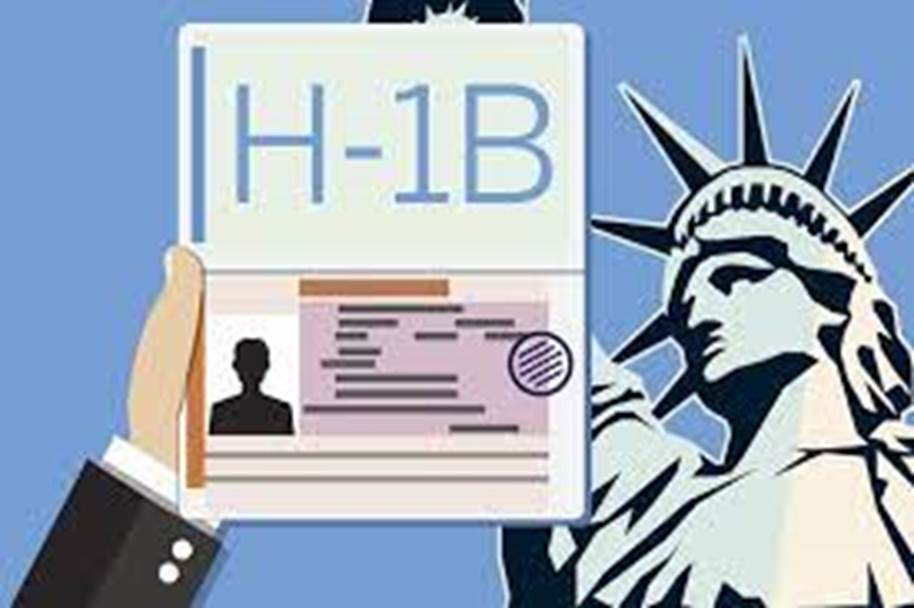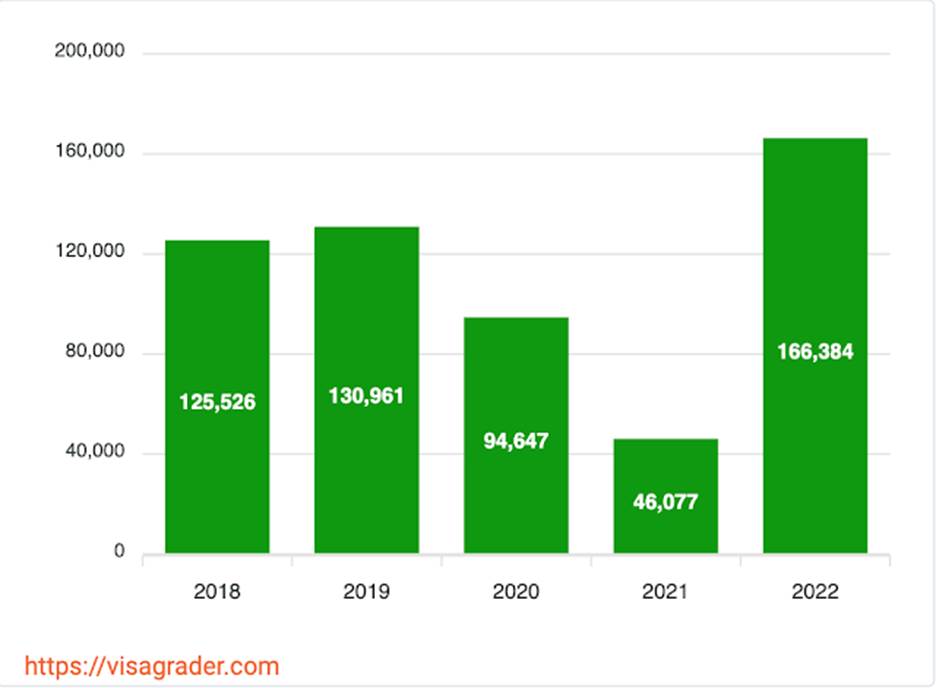
Photo CIO
US Proposes H-1B Visa Changes to Stop Body Shop Fraud
By Riaz Haq
CA

The Biden administration has proposed a number of significant changes in how the H-1B temporary work visas are issued to high-skilled foreign workers. These changes are the result of the government finding earlier this year that companies, particularly body shops, have colluded to try to increase their chances of winning a coveted visa by gaming the visa lottery system. This has helped Indian workers win as many as three quarters of all H1B visas issued in recent years.

|
H1B visas issued in India - Source Visagrader.com |
Every year, applicants sponsored by Indian body shops claim the lion's share of H1B visas. In 2022, Indian nationals received 166,384 new H1B visas, accounting for nearly three quarters of all such visas issued by the US government. The figures reported as India IT exports include the wages earned by millions of Indian H1B workers in the United States.
Public interest groups have been complaining about the behavior of Indian body shops gaming the system to take away a big chunk of the H1B visas issued each year. The Federation for American Immigration Reform (FAIR) is one such group. In a report last year, FAIR said, "… the H-1B lottery as currently constituted is a corrupt program dominated by Indian ‘body shops’ that prey on desperate foreign workers looking for a light at the end of the tunnel: a green card. A bustling industry of lawyers and lobbyists advertises ways to improve players’ ‘chances of success.’"
“Because [USCIS] made it easier, you’re seeing an over-exaggerated demand, mostly from Indian outsourcing companies that provide lower-cost labor,” Roger Ross, a policy adviser for US Tech Workers, told FAIR in a phone interview.
Last year, the United States Citizenship and Immigration Service (USCIS) issued a Notice of Intent to Deny (NOID) for petitions filed by companies they found related by common ownership such as family relationships or registrations done by the same agent.
The most significant change to the H1B visa system involves the elimination of multiple entries by employers on behalf of the same employee. In 2023, over half of the approximately 800,000 H-1B registrations were multiple entries, artificially inflating the chances of some applicants, according to an Indian news outlet NDTV 's report. Under the proposed new rules, an employee can only be registered once, and employers will now be required to submit passport information for each employee. This allows the USCIS to ensure a fair and equitable selection process. Violation of this rule will lead to denials or revocations of visas.
Other changes involve elimination of "employer-employee" relationship for H1B visa (entrepreneurs can sponsor themselves) and eligibility of remote work for job offers, extension of the "cap-gap" provision for international students on F-1 visa to receive H1B visa, more on-site inspections for IT consulting work and stricter definition of "specialty occupation".
Currently, India tops the list of foreign-born STEM workers with 721,000, followed by China (273,000), Mexico (119,000), Vietnam (100,000), Philippines (87,000), South Korea (64,000), Canada (56,000), Taiwan (53,000), Russia (45,000) and Pakistan (35,000). The large number of Indian STEM workers in the United States can at least partly be attributed to the fact that India's "body shops" have mastered the art of gaming the US temporary work visa system. Last year, Indian nationals sponsored by "body shops" like Cognizant, Infosys and TCS received 166,384 H1B visas for work in the United States. By comparison, only 1,107 Pakistanis were granted H1B visas in Fiscal Year 2022. Besides H1B work visas, 9,300 Indian nationals and 7,200 Pakistani nationals received immigrant visas to settle in the United States as permanent residents in 2021.
(Riaz Haq is a Silicon Valley-based Pakistani-American analyst and writer. He blogs at www.riazhaq.com )

